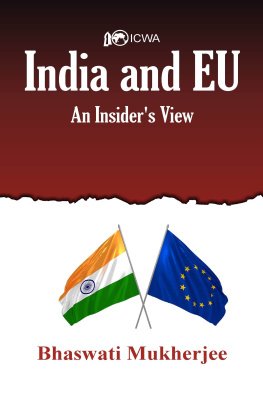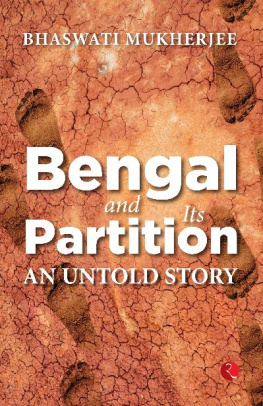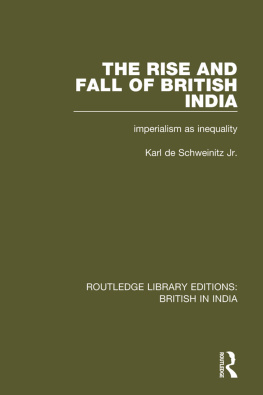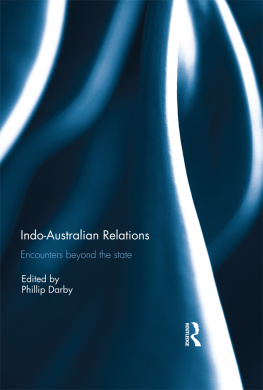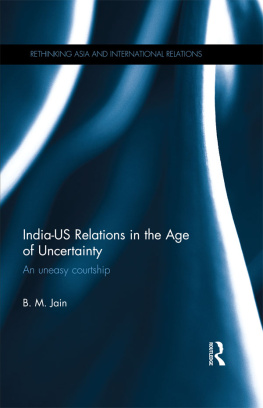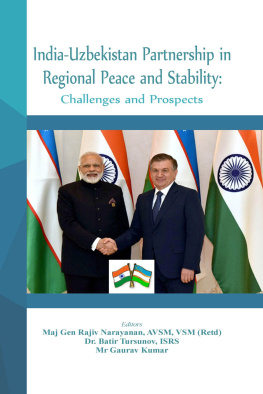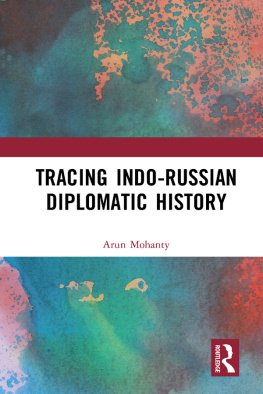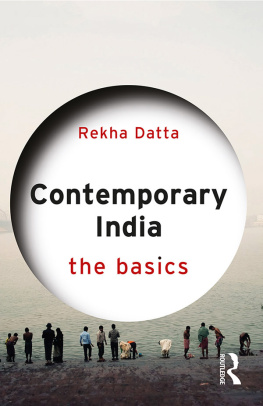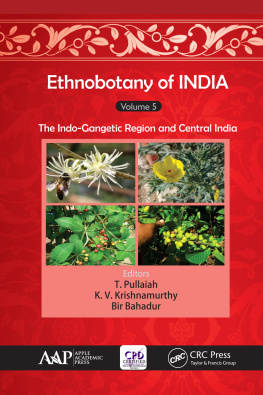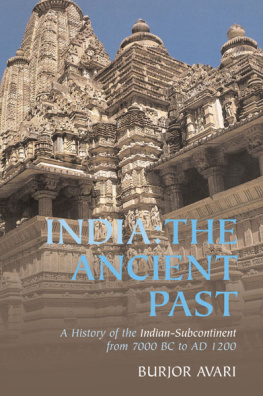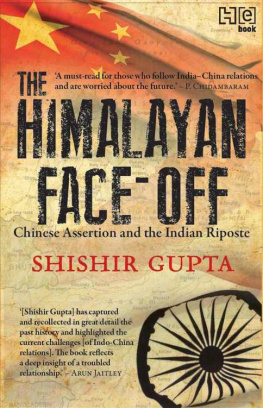India and EU
An Insiders View
India and EU
An Insiders View
Bhaswati Mukherjee

Published by
Vij Books India Pvt Ltd
(Publishers, Distributors & Importers)
2/19, Ansari Road
Delhi 110 002
Phones: 91-11-43596460, 91-11-47340674
Fax: 91-11-47340674
e-mail:
web : www.vijbooks.com
Copyright 2018, Indian Council of World Affairs (ICWA)
ISBN: 978-81-93759-10-3 (Hardback)
ISBN: 978-81-93759-12-7 (ebook)
Price : 995/
All rights reserved.
No part of this book may be reproduced, stored in a retrieval system, transmitted
or utilized in any form or by any means, electronic, mechanical, photocopying,
recording or otherwise, without the prior permission of the copyright owner.
Application for such permission should be addressed to the publisher.
The views expressed in this book are of the author/contributors in their personal
capacity and do not represent the views of the ICWA.
Printed and bound in India
List of Maps and Charts


Indias relations with Europe go back to millennia. Why then the surprising paucity of research on the Indian side on the dynamics of the India EU relationship? This is in contrast to the excellent and well researched material on the European side regarding the relationship from their perspective. What is required is a thorough analysis of Indias responses to the multiple crises facing the EU which are impacting EUs relationship with India. Surely, a historic relationship, going back to pre-colonial and colonial times needs more attention from the Indian side. One has only to recall both the Silk Route stretching all the way westwards to Italy from Patliputra (now Patna) and the Spice Route, both iconic reminders of our past, which brought the ships of Indias future colonizers to her shores, to the historic and beautiful Coromandel Coast, later renamed as the Spice Coast. The importance and continuing relevance of Indias historic connections with Europe can never be over emphasised.
The lack of interest on the Indian side is difficult to comprehend, considering the warmth of the relationship, the strategic contours and trade and commercial ties of fundamental importance to both sides. Is it due to a lack of interest on Indias part? Is India becoming insular? Is its foreign policy becoming America centric? Has the absence of scholarship and research within India discouraged serious authorship on this issue? Whatever the reasons, it is timely and necessary for India to study its relations with Europe and EU in a strategic context, analyze the challenges and show the way forward.
It would also be beneficial for the EU to develop a more sympathetic and less critical approach to a future great power in order to build a meaningful strategic partnership in an increasingly challenging international scenario. It is a wakeup call to those who manage these relations on both sides.

This book is a narrative about Europe meeting India. The relationship goes back millennia. Burdened with the colonial baggage of 190 years of British rule in India, it is a complex journey. Surprisingly, there is a paucity of scholarship on the Indian side regarding this journey and how it is continuing in this millennium. The book is an effort to address this void and to analyze and address the multiple challenges facing the relationship in the context of a rapidly changing global scenario.
As the officer with the longest tenure at the Joint Secretary level dealing with West Europe (1998-2004), I was struck by the myths and misperceptions on both sides regarding the relationship. This became clear during the First India EU summit in Lisbon in June 2000 where much of the groundwork was done by me as the concerned Joint Secretary. Many on the EU side had imagined that in the India EU context, UK should be in the drivers seat. The reality was that these relations were driven by France and Germany. On the economic side, pressure from the UK resulted in deadlocked negotiations on the BTIA. Even before Brexit, Indias engagement with EU remained a separate and important pillar of its foreign policy.
As Indias Ambassador to UNESCO (France) (2004-2010) and to Netherlands (2010-2013), I reluctantly acknowledged that apart from France and Germany, other EU Member States always ranked China before India in the South Asia Divisions of their respective Foreign offices. Even Japan was ranked after China! The justification given was the importance of the trade relationship, bilaterally as well as through Brussels. This led to a curious double dealing vis a vis China and India. Sensitive issues like Dalai Lama or Tibet were never articulated in public at senior official or ministerial level.
After retirement and return home in July 2013, I was actively encouraged by the then Director General of the ICWA, Ambassador Rajeev Bhatia and his successor Ambassador Nalin Suri, to compile a narrative on this complex relationship, address the roadblocks and suggest a way forward. To encourage a better understanding of this unique intra state entity called the European Union, it was suggested that I could also explain the institutions of the EU and the pillars that constitute their common foreign and security policy.
The task was formidable for a potential first author who also had to address the technological challenges of researching and writing a book without putting pen to paper! I will always be grateful to the former DG ICCR Ambassador Amarendra Khatua who introduced me to a very bright young researcher from George Washington University, USA, Dr. Bidisha Banerji. Bidisha, as I now call her, painstakingly helped with the background research, the endnotes, the index and references while providing very helpful suggestions regarding chapterization and the technical requirements expected by publishers from the author. It was Bidisha who introduced to the world of editors, their jargon and their manifold requirements! She also helped me to type out the book, otherwise it would have been delayed by over a year! As a result, she and her husband Rajnil are now part of my family. I would like to gratefully acknowledge Bidishas key role in the conception and realization of this publication.
I would like to acknowledge the role of Joint Secretary Piyush Mankad who was then in ICWA. He was always available to answer my anxious queries and reassure me as I embarked on my first visit to Europe as a retired ex Ambassador. The two peer reviewers (identity unknown) provided most helpful suggestions which enriched the book. I would like to thank them for their support! I would like to thank senior researcher Nivedita Ray in ICWA for her support in sending the book for publication.
Rajiv Dogra, diplomat, close friend and best selling author, guided me at crucial moments, drawing upon his experience as an established author. The book would not have been possible without him. I thank him for his support and contribution.
I would like to gratefully acknowledge the support and valuable inputs of EU Ambassador Tomaz Kozlowski, Dutch Ambassador Alphonsus Stoelinga and Greek Ambassador Panos Kalogeropoulos. I would also like to thank Shada Islam of Friends of Europe for her helpful suggestions and support.
Next page
